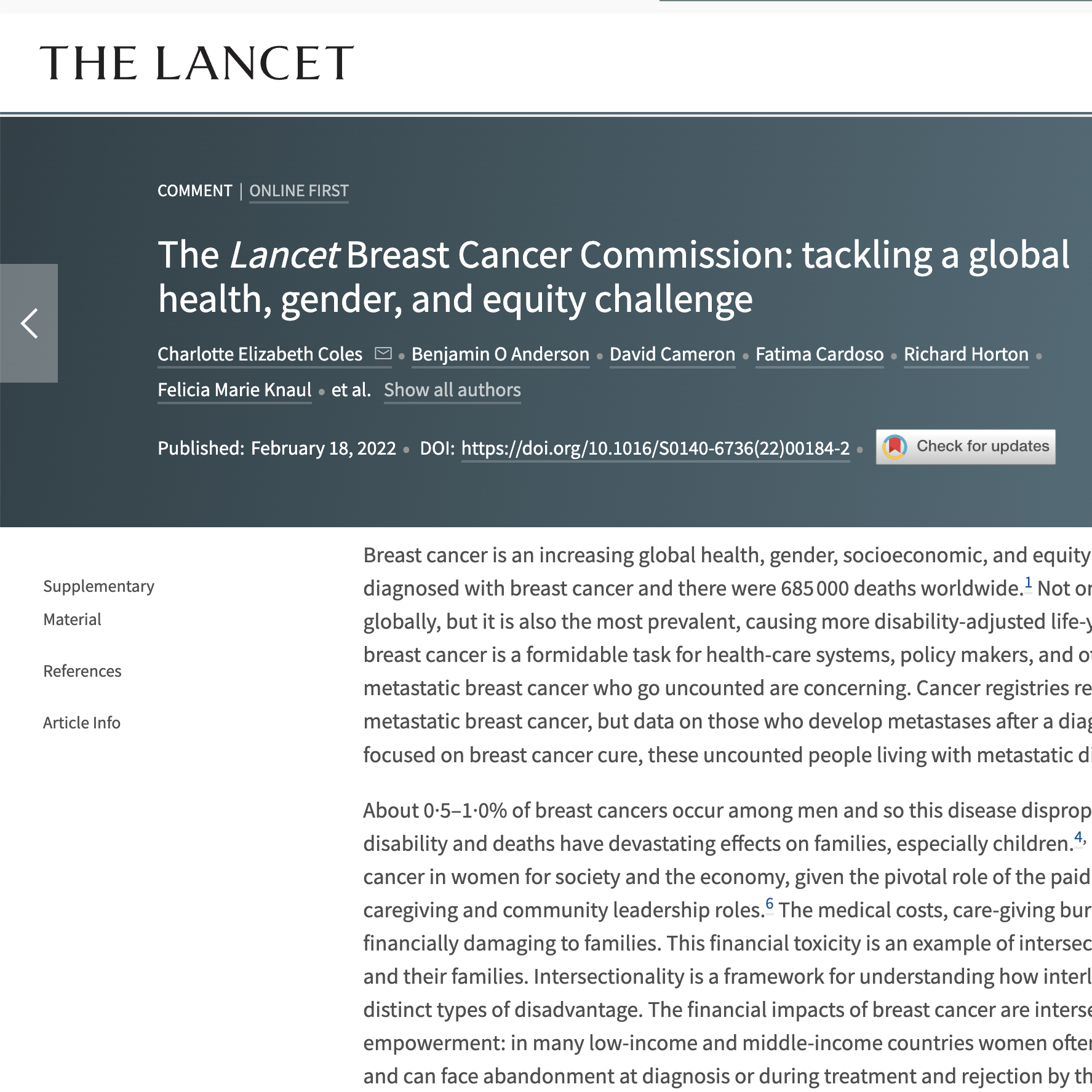24 February 2022
Now is the time to reduce global access inequalities to breast cancer treatment and management
The Lancet Breast Cancer Commission: tackling a global health, gender, and equity challenge
24 February 2022
The Lancet Breast Cancer Commission: tackling a global health, gender, and equity challenge

The Lancet Breast Cancer Commission, a worldwide multidisciplinary team of leaders and patient advocates, published a few days ago a Comment article in the medical journal The Lancet calling for urgent action to ensure treatment equity for women with breast cancer no matter who they are and where they live. Fátima Cardoso, internationally renowned Director of the Breast Unit at the Champalimaud Foundation, is one of the authors and representative of the larger work group.
Breast cancer is the most obvious “test case” for the gender and equity disparities that exist in the oncological arena around the world, not only between high-income and low-income countries, but also within a given country’s society. For one, it affects almost only women, inevitably giving rise to gender discrimination and stigmatisation when it comes to cancer treatment. On the other hand, the inequities in terms of access to high-quality treatment of breast cancer that still exist today are abyssal.
For the authors, perhaps the most difficult issue to tackle is in fact inequity. “Access to early detection, comprehensive diagnostic investigations, and timely high-quality breast cancer management depends on who you are and where you live”, they write. The marked positive correlation between 5-year breast cancer survival rates and country income is unacceptable, as it is within countries, where survival rates are linked to race and poverty, they add.
During the past decades, improvement in breast cancer management has made mortality rates from breast cancer decline sharply in rich countries. Scientific advances have opened the way to the personalisation of surgery, radiotherapy, and other treatments for each individual patient, allowing an unprecedented rise in positive clinical outcomes and the reduction of adverse side-effects.
Yet, the current global situation is terrifying. “How can it be acceptable for the survival estimates of some Black women in sub-Saharan Africa to be as low, or lower, than women treated in the USA nearly a century ago, [and that] these survival estimates be “still mirrored even in the US [concerning] many women of colour and women in marginalised communities?, the authors of the appeal ask. “Why is the excess hazard ratio of death [in the UK] more than 50% higher for those with social deprivation?”
“Globally, we are at a pivotal point”, they state. “Unless rapid progress in breast cancer medicine and science is capitalised to ensure equitable access for all, the current inequalities between and within countries will widen into a chasm.” The Commission has already developed a work plan, which is outlined in the article and defines specific tasks “to investigate, describe, and devise actionable recommendations”.
”This Commission has a sense of urgency. The time to act is now”, the authors conclude.
Read the full Lancet article here.
